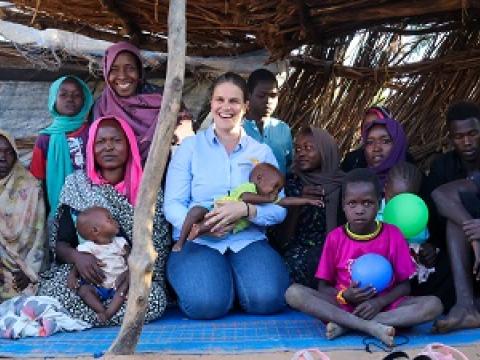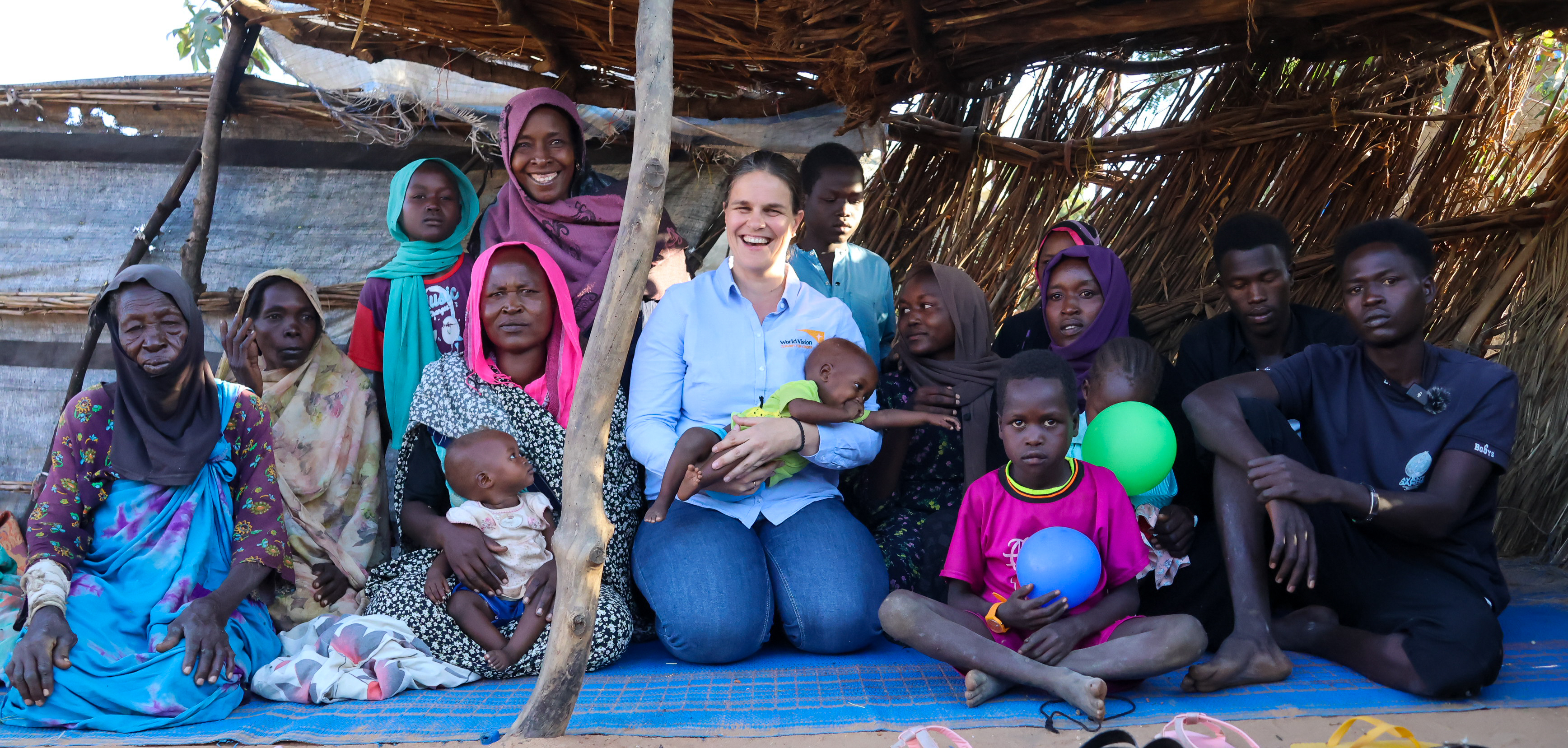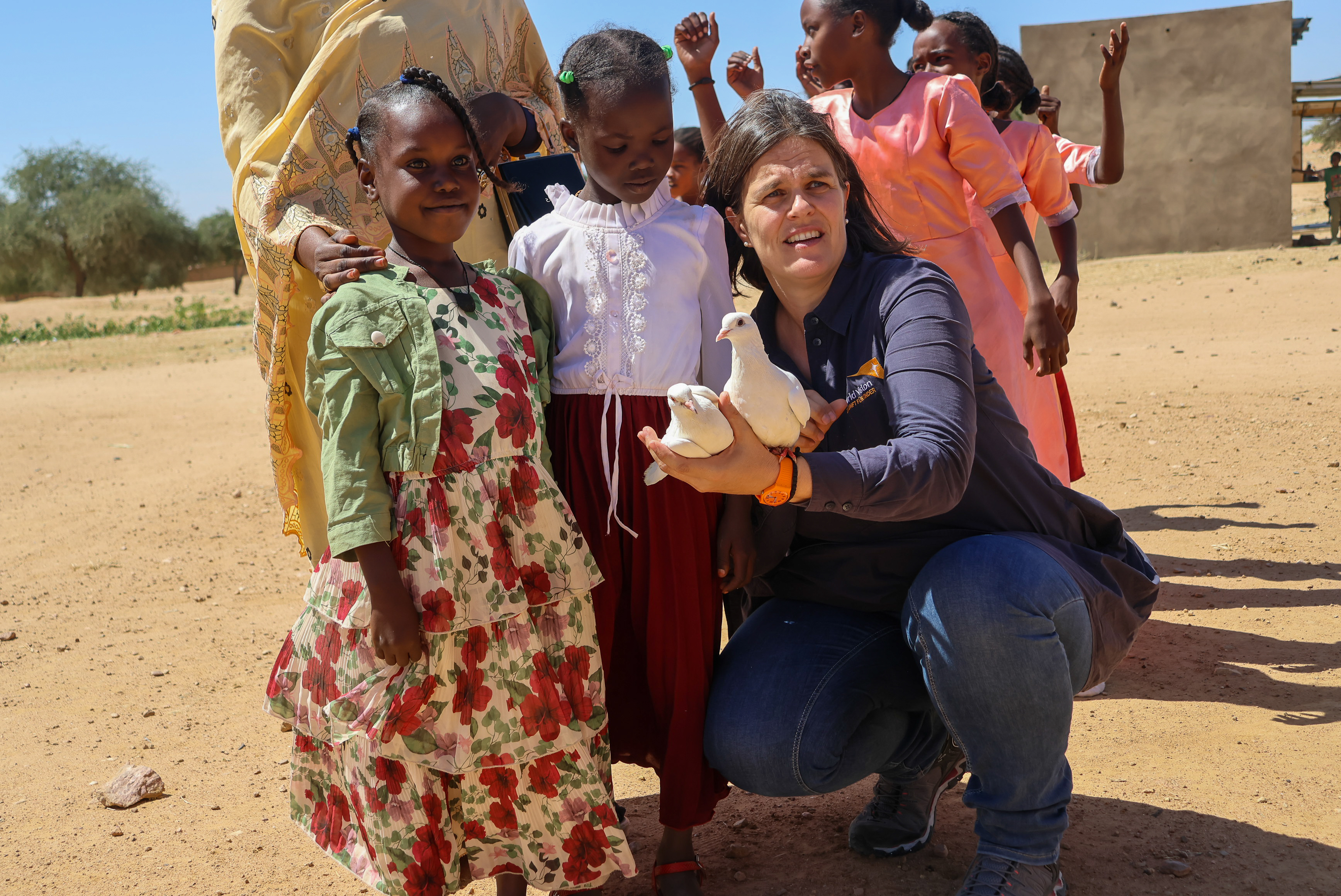Sudanese Cree, a journey to hell for the Adam Abdallah family

During a visit to Chad, World Vision Germany President Jeanine Lietmeyer met the Adam Abdallah family at the Adré transit camp. This family of twelve children lost their father while fleeing the war in Sudan and has found refuge in Adré, a town bordering Chad.

Gathered under the makeshift shed they use for shelter when the sun is high, the twelve siblings of the widow Adam Abdallah welcomed us. Faces without landmarks, disorientated, from the youngest to the oldest. With her throat dry and tight, the widow said "salaam" with a gesture and asked us to come forward and take our seats. She was carrying her youngest child in her arms. We sat down next to her and her children on a torn mat.
The head of Word Vision Germany's support office, Janine, asked her how she was doing. With a hesitant look and a trembling voice, Adam's widow said, "I'll be fine. Then, after a pause, with tears in her eyes, she continues: "I can't... I am overwhelmed... why didn't death take me... why? " and she melted into the interpreter's shoulders.
In fact, this family lost everything en route as they fled hostilities between rebels and the loyalist army in Sudan. Barefoot, the older children carried the younger ones on the two-day trek from El Geuneina to the Chad-Addre border. "Time doesn't pass, it's like a nightmare, the air is getting heavier and heavier for us," says Mrs Adam Abdallah. "Besides my husband, I almost lost my eldest son. He was shot in the neck. The bullet crossed his neck from left to right. She shows us by calling her son, who has tears in his eyes. He looks very much like his late father," adds his mother.
When asked by Janine, President of World Vision Germany's support office, “how does she make ends meet ? Her eldest son Nesr Eldan, 22 years old, replied: "With my younger brothers and sisters, we go to work in a brick factory here in Adré. It should be noted that this type of work is not without danger for the youngest. The youngest is not yet old enough to work, and going out early exposes Mariam, who was initially reluctant to join her brothers. She now faces harassment from men. The family receives a trickle of food from humanitarian organisations.
"The last time we received food was two months ago, but we help each other, especially our neighbours here in the transit camp," explains Madame Adam.
Being in a transit camp, the Adam family live in daily uncertainty and do not receive regular food like many other families around the Adam family shelter. To avoid aggression and attacks by robbers and thieves. The families have set up a security system, with young people, especially the older ones, making the rounds at night to watch over the families. As for food: "We eat together. The men share, the women share and the children share," explains Madame Adam. "This allows us to make better use of the few resources we have".

This solidarity goes beyond security and food sharing. We don't want the children, especially the younger ones, to wander around the transit camp. The older children get together for games, dances and other fun activities. Not to mention the women combing each other's hair and giving each other advice on how to get through these difficult times.